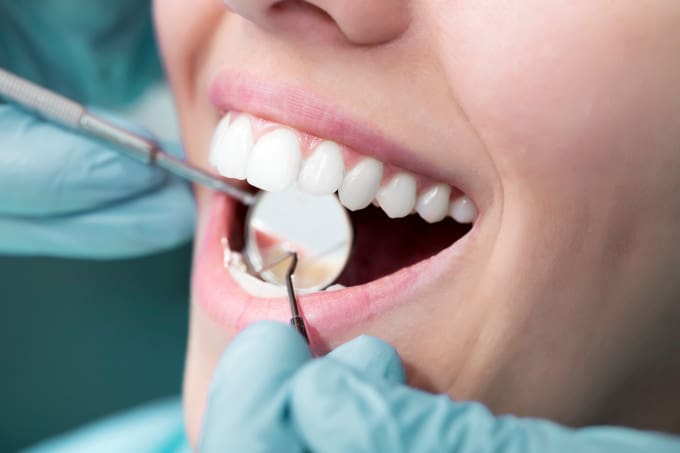The Need For A Deep Cleaning
Periodontitis
One of the reasons you need this procedure is because of gum disease. It can seriously put your health in danger. It is a condition that threatens the health of your bones and gums progressively. More than a quarter of our population is susceptible to this disease.
It involves both preventable and inevitable factors. You can prevent the disease from happening if you don’t smoke in the first place. Smoking forms plaque and tartar in your teeth, which eventually progresses to gum disease.
When you choose to smoke for a longer time, plaque continually builds up. As time passes, it evolves into tartar and starts attacking your gums. While it is still plaque, it’s easier to remove; this is because tartar emits toxins that weaken gum tissues. Then a gap begins to form between your gums and teeth – where gum pockets are created.
Inevitable factors include a change in hormones such as being an adolescent, or being pregnant or reaching menopause for women. If you don’t do something about your plaque and tartar, you will only be exposing your mouth to gum infection and corrosion.
Tooth Loss
Periodontitis can lead to tooth loss. While you may think it’s only your mouth that’s affected, it’s actually your total health. Early stages of gum disease can be unnoticeable. Prevent any health problems by consulting a qualified family dentist near you if you experience any of these in your gums: bleeding, puffiness, and redness.
Procedure
Most people visit the dentist only when problems have already occurred due to the lack of awareness in regards to the importance of dental cleaning. In these cases, debridement is the first step. There is a thick, sticky layer of plaque that has built up around your teeth, which may restrict proper inspection. We first remove this layer so that the routine procedure can follow.
We look for signs of gum disease with the use of a periodontal probe. Gum pockets deeper than 3 millimeters contributes to gum disease. Also, if your teeth are loose, it may be caused by already existing gum issues. It causes weakening bone support. A set of x-rays may be done to establish the presence or severity of the bone loss.
Deep dental cleaning not only removes plaque; it completely stops gum disease in its tracks. Early-stage gum disease is treated by root scaling and planing.
Deep Dental Cleaning Techniques
Root Scaling – This removes the plaque, stain, calculus, and other accrued material. We manually remove these either by hand or with an ultrasonic scaler in cases where there are excessive amounts in your mouth.
Root Planing – We use an ultrasonic scaler to help get rid of dental plaque, root surface endotoxins, and remaining calculus. It aims to remove cementum and is done on the roots of the teeth that show bone loss with tissue collapse. It meticulously cleans your teeth that have been contaminated with damaging bacteria.
It may be enough to control progressing gum disease which depends on the extent of the damage. Your condition will be the aspect to consider in establishing the number of treatments you will need. As this treatment is more advanced than a regular cleaning, you can opt for anesthesia.
Signs and Symptoms
Palm City Family Dentists can determine if you have gum disease and advise treatment. While early-stage periodontitis is tricky to spot, go to us if you notice any of the following:
- Gums exhibiting bleeding, swelling, and reddening
- Tooth loosening
- Dentures not as comfortable as they were
- Bad breath despite brushing conscientiously
- Teeth and gums seem to separate
- Presence of pus between your teeth and gums
(772) 286-8600
Contact Palm City Family Dentists To Book Your Deep Cleaning
There is absolutely no need to hesitate to come in for an advanced dental cleaning process. Palm City Family Dentists of Palm City, Florida, make sure that you are completely comfortable with the process. Cleaning procedures are mostly pain-free, and it’s always a great idea to make sure you don’t miss your routine appointments. Stay on top of your oral health! contact us today. (772) 286- 8600






